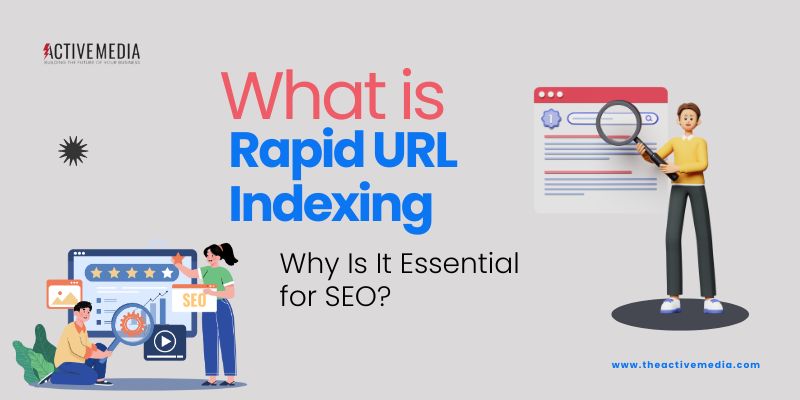When it comes to SEO for lawyers, specifics matter. Shifting through the one-size-fits-all tactic doesn’t translate to the legal industry, where niche optimization is paramount. Recognizing this, we’ve crafted a guide honed in on helping your law firm improve search engine rankings and draw in clientele – the lifeblood of any thriving practice. Prepare to harness the power of SEO custom-fit for the legal landscape.
Key Takeaways
Tailor SEO strategies to reflect specific legal practices and focus on producing high-quality content, using strategic keywords, and maintaining consistent SEO efforts to improve rankings and attract the right visitors.
Optimize technical website aspects like site structure, speed, mobile responsiveness, and HTTPS security to enhance user experience, meet search engine standards, and positively impact rankings.
Local SEO, quality backlinks from reputable sources, and adapting to algorithm changes are essential for law firm SEO success, along with measuring performance through tools like GA4 for insights into traffic, rankings, and conversion rates.
Decoding SEO for Law Firms

In the world of SEO, there’s no one-size-fits-all solution. This holds especially true for law firms. Due to the highly specialized nature of legal content and the fiercely competitive market, law firms face unique challenges in their SEO efforts. To overcome these, a more tailored approach is required, one that reflects the specific area of legal practice your firm specializes in.
Central to a successful law firm’s online presence are strategies such as producing high-quality content, ensuring consistent website monitoring for issues, and setting realistic goals for ranking, conversions, and ROI. It’s also important to remember that achieving top rankings with SEO for law firms is a long-term endeavor. So, it’s essential to maintain a consistent focus on best practices, such as strategic keyword usage, to ensure a steady improvement in visibility and search rankings over time.
Lawyer SEO, attorney search engine optimization, and attorney SEO are not just about attracting more visitors to your website; they’re about attracting the right kind of visitors – those who are likely to become your clients. This is achieved by maximizing your law firm’s online search visibility through techniques designed to enhance your rise in search engine results, such as law firm SEO services. The goal of search engine optimization? To reach potential clients and expand business opportunities.
Understanding Legal SEO Jargon
Mastering SEO for law firms requires a firm grasp of some key terms. Let’s start with E-A-T. In the context of SEO for lawyers, E-A-T stands for Expertise, Authoritativeness, and Trustworthiness. Search engines look for these attributes to validate the quality of content. In simple terms, if your content demonstrates your firm’s expertise, establishes authority in the field, and is trustworthy, you’re on the right path to SEO success!
Next, let’s consider Schema markup. This is a type of code that lawyers can add to their websites to help search engines understand the content better, potentially leading to more prominent placement in search results. Think of it as a guide that tells search engines exactly what your content is about, making it easier for them to index and rank your pages accurately.
Lastly, we delve into keyword research. This involves using specialized tools to determine how potential clients are searching for legal services, ensuring that your website uses relevant terms. It’s finding out what your potential clients are typing into search engines when looking for the services you offer, and then using those exact words and phrases in your website content.
The Intersection of Law and Search Engines
Although Legal and SEO may appear as two disparate worlds, they are significantly intertwined. Legal websites have a unique set of rules and regulations they must adhere to. For instance, they must comply with the Americans with Disabilities Act (ADA), ensuring that their websites are accessible to all users. Non-compliance can lead to penalties and damage a law firm’s reputation.
State bar rules can also impact SEO practices for law firms. They dictate how legal services can be advertised and may limit the use of certain language or claims. It’s a delicate balance between effective marketing and adherence to legal advertising rules.
Furthermore, ethical considerations in legal SEO necessitate a fine balance between effective marketing practices and compliance with legal advertising rules. Non-compliance can lead to penalties. Additionally, law firms need to ensure that their content marketing efforts, while optimized for search engines, do not mislead potential clients or misrepresent legal services. In other words, honesty and transparency are just as important in SEO as they are in the courtroom.
Crafting an SEO-Driven Content Strategy for Your Law Firm

In the SEO realm, content reigns supreme, and for law firms, a robust content marketing strategy is the crown jewel of SEO. Why? Because SEO is a primary marketing tactic for law firms, recognized for its effectiveness and scalability in generating high-quality leads.
An effective content marketing strategy necessitates developing high-quality, pertinent content that is reader-friendly and search engine-optimized. But it doesn’t stop there. It’s also crucial to incorporate evergreen topics into your content strategy. These are topics that remain relevant over time and continue to attract interest from your target audience. This not only helps establish your law firm’s credibility but also showcases your expertise.
However, even the best content can become outdated or irrelevant as Google’s algorithm updates. Therefore, law firms must be prepared to adjust their website and content strategies in response to these updates to maintain their search engine rankings and visibility. Remaining at the forefront is pivotal for SEO triumph!
Identifying Target Keywords for Legal Services
Identifying target keywords is one of the most vital facets of SEO for law firms. But it’s not just about finding the most popular keywords; it’s about finding the most relevant ones. Understanding the search intent of potential clients is more critical than selecting keywords based solely on high search volume. It’s about finding out what your potential clients are typing into search engines when looking for the services you offer.
Keyword research for law firms should begin with a broad list of legal keywords that could attract organic traffic. This list should then be refined to the most relevant terms for your target audience. After all, it’s not just about attracting more visitors to your website; it’s about attracting the right kind of visitors – those who are likely to become your clients.
Assessing keyword search volume, difficulty, and intent can help determine the most effective keywords. Low keyword difficulty can aid in ranking quickly and drawing in relevant visitors. To do this, you can utilize tools like Keyword Surfer and Ahrefs, along with strategies such as reviewing legal questions asked by clients and examining legal forums.
Content Creation: Balancing Legal Expertise with SEO Needs
Producing content that balances your legal expertise and SEO requirements might be challenging, but it’s paramount for your SEO strategy’s success. High-quality content creation is a fundamental strategy for drawing visitors to your law firm’s website and improving conversion rates.
To rank well and earn the trust from potential clients, your content needs to provide value. It should be engaging, relevant, and fulfill user intent. That means it should answer the questions your potential clients are asking or provide the information they’re looking for.
To do this effectively, you’ll need to:
Anticipate user intent and query meanings
Address immediate concerns through FAQ pages
Reflect your expertise
Create a diverse content plan that includes blog posts, videos, and case studies
This can help your law firm rank for targeted keywords and cater to the needs of your audience.
Technical SEO: Optimizing Your Law Firm’s Website Infrastructure

Despite content being a major component of SEO, it isn’t the sole factor. Technical SEO involves optimization efforts that aren’t directly related to web page content but affect rankings within search engines. This is where the importance of optimizing your website infrastructure comes in.
Optimizing the website for search engines to easily crawl, index, and understand the content is a critical component of technical SEO. To do this, your law firm must have a logical site structure that creates a network where every page is linked to every other page with a clear connection. A flat website structure is recommended for SEO as it influences how Google crawls and indexes web pages.
But that’s not all. To achieve optimal technical SEO results, your law firm should also maintain a fast-loading website, as site speed is a ranking factor and contributes to user experience. This can be verified through an audit checking on-page SEO factors on your website, including the search for target keywords, reviewing messages in Google Search Console, and utilizing tools like Google’s PageSpeed Insights.
Site Speed and Performance
In terms of user experience, speed matters greatly. Slow-loading pages create a poor user experience and can result in lower search engine rankings. Pages that load within two seconds can significantly reduce bounce rates, which tend to skyrocket to as high as 38% for pages taking five seconds to load.
Furthermore, Google prioritizes site speed as a ranking factor, particularly through its mobile-first indexing which focuses on the mobile version of a site. As voice search gains popularity, law firms should ensure their websites load quickly on mobile devices to meet the expectations of users for instant results.
Therefore, if you aim to keep a competitive edge in the SEO landscape, prioritizing site speed and performance is a must.
Mobile Optimization: Catering to On-the-Go Users
In the current digital era, mobile optimization has transitioned from being optional to a necessity. With over half of website visits originating from mobile devices, it’s important to note that 53% of mobile site visitors will abandon a site if the loading time exceeds three seconds.
A mobile-friendly website is critical for law firms to provide a positive user experience and to meet Google’s standards. With 57% of website traffic in the U.S. coming from mobile devices, having a responsive site design is a baseline requirement for website optimization.
Law firms must be proactive in their SEO strategies by optimizing their websites for mobile, a technical requirement that Google evaluates when ranking sites.
Secure Browsing with HTTPS
Securing your website is not only vital for your users but also plays a critical role in your search engine rankings. HTTPS is a confirmed ranking signal within Google’s search algorithm, enhancing the credibility and ranking potential of a law firm’s website.
Secure Sockets Layer (SSL) certification is acknowledged by Google as a ranking signal and can lend a competitive edge to a law firm’s website ranking. Having an SSL certificate on your website is like having a digital passport. It verifies that the site is safe to visit and interact with.
But it’s not just about rankings. HTTPS protects user data through encryption, ensuring confidentiality and integrity of the information exchanged between the user and the website. This is particularly vital for law firms that handle sensitive information.
Local SEO Mastery for Law Practices

Now, let’s shift our focus to local SEO. This is incredibly important for law firms because most potential clients seek legal services in their immediate area. Google ranks businesses based on relevance, distance, and prominence, which is why local SEO is a must for any law firm looking to dominate its local market.
Properly setting up a Google Business Profile, with consistent NAP information and prompt management of client reviews, enhances local search visibility and is integral for ranking in local searches and Google Maps.
To supplement your Google Business Profile, creating location-specific pages for each office location on your law firm’s website can inform your audience about your firm’s service areas and help rank well locally. And with the rise of voice search, it’s more important than ever to optimize for local SEO.
Claiming and Optimizing Your Google Business Profile
A Google Business Profile is crucial for law firms to connect with local clients, providing important firm information and improving local search visibility. Optimizing your Google Business Profile involves a few simple steps:
Start with a comprehensive business description and accurate NAP details (Name, Address, and Phone number).
Make sure to select the correct primary and secondary categories for your law firm.
Ensure any business name modifications are legally filed.
But don’t stop there! Enhance user engagement on your Google Business Profile by regularly:
Adding photos
Creating posts
Responding to Q&As
Incorporating a virtual tour
This will help attract more clicks and direction requests.
Harnessing Local Citations and Reviews
In addition to optimizing your Google Business Profile, harnessing local citations and reviews is another key aspect of local SEO. Local citations, which confirm your law firm’s business details on local directories and platforms, enhance your local SEO presence by establishing relevance, prominence, and geographical location.
Building and maintaining accurate and comprehensive local citations is a continuous process. You can use tools like Moz Local and conduct monthly citation audits to ensure your NAP information is consistent across all platforms.
Lastly, reviews. Encouraging clients to leave reviews, especially on your Google Business Profile, and promptly responding to them demonstrates professionalism and incorporates relevant keywords, impacting local search rankings.
Building Authority with Backlinks

Establishing authority with backlinks constitutes a fundamental aspect of SEO for law firms. Backlinks, or inbound links, are links from other websites that point to your website. They serve as ‘votes’ of confidence for your content, which Google considers a priority after content for rankings.
However not all backlinks are created equal. Quality backlinks are distinguished by:
Their relevance to your content
Their origin from reputable and authoritative legal industry domains
They should not be part of a reciprocal link scheme.
Strategic link-building can significantly enhance your law firm’s industry authority and search visibility. But remember, it’s not just about quantity; it’s about quality. The right backlinks can significantly improve your website’s domain rating, signifying a trustworthy website, and positively influence your law firm’s ranking in search engine results.
Quality Over Quantity: Acquiring Reputable Backlinks
In the context of backlinks, quality takes precedence over quantity. Google assigns authority to law firm websites that have quality backlinks from relevant and trusted sources, thereby boosting their rankings for relevant keywords.
Backlinks from educational (.edu) and charitable organizations (.org) are seen as reputable and can enhance both public relations and your law firm’s website authority.
Effective techniques for earning high-quality backlinks include:
Producing engaging content like infographics, videos, and whitepapers
Collaborating with influencers in the legal field
Sponsoring events
Engaging with local media
Participating in community projects
Getting listed on prominent legal directories
Avoiding Harmful Link-Building Practices
While cultivating backlinks is significant, it’s equally important to steer clear of detrimental link-building practices. Low-quality or non-relevant links can harm your law firm’s SEO. Cultivate a varied backlink profile and avoid relying exclusively on any single strategy, such as guest posting, to prevent predictable patterns that search engines could penalize.
Also, avoid manipulative tactics such as:
engaging in link exchanges
participating in reciprocal linking schemes
using unrelated articles for backlinks
purchasing links
These can lead to search engine penalties. It’s also important to steer clear of automated software or services that promise quick backlink building, as it can result in a spammy and potentially penalized link profile.
Measuring SEO Success for Law Firms
Evaluating SEO performance is vital in supporting your law firm’s profitability and aiding decision-making regarding SEO strategy investments. Tools like Google Analytics, Google Search Console, and dedicated SEO software such as Ahrefs are instrumental in tracking your law firm’s online visibility and the impact of your SEO efforts.
Key metrics to evaluate include site traffic, the popularity of pages, monitoring of inbound link quality, and benchmarking with follow-up reports.
Monitoring Organic Traffic Growth
Organic traffic, derived from non-paid search results, is a crucial metric of SEO success for law firms. Google Analytics is instrumental for law firms to track various aspects of website traffic, including visitor location, traffic sources, and individual page performance.
With the sunset of Google Analytics Universal on July 1, 2023, law firms need to transition to GA4 to maintain their data collection and analysis capabilities. GA4 provides more detailed insights into user interactions, moving away from the traditional focus on sessions and page views.
Setting up goals and events in Google Analytics enables law firms to track specific user actions such as page views, video watches, or resource downloads, providing valuable insights into site engagement. Metrics such as pageviews, unique pageviews, and time on page are central to evaluating a law firm’s website content performance, offering insights for growth in organic traffic.
Tracking Rankings for Relevant Keywords
It’s critical to monitor keyword rankings as they directly affect your law firm’s visibility and traffic. The first organic search result in Google garners an average click-through rate of 28.5%, highlighting the importance of ranking high for target keywords.
Only 2 to 3 percent of people visit the second page of Google’s organic search results, making it crucial for law firms to aim for first-page rankings. By addressing users’ questions and search terms effectively, law firms increase the likelihood of Google featuring their website higher in search results.
Remember, it’s not just about attracting more visitors to your website; it’s about attracting the right kind of visitors – those who are likely to become your clients.
Evaluating Conversion Rates
Attracting the right audience to your website is significant, but converting those visitors into clients is even more vital. This is where conversion rates come in. A one-second delay in mobile page load time can lead to a 20% drop in conversions, while a delay of just a second in page response may cause a 7% reduction in conversions.
Referral traffic from relevant backlinks can increase leads and potential conversions by encouraging users to visit your law firm’s website. Some strategies to boost traffic and conversion rates include:
Positive Google reviews
Strong representation in legal directories
Demonstrating credibility on your law firm’s website through client testimonials, showcased case results, and highlighted professional credentials
Implementing these strategies can significantly influence a visitor’s decision to convert into a client.
Enhancing User Experience to Boost SEO
User experience plays a crucial role in SEO. Recent Google algorithm updates have placed significant emphasis on sites that provide informative, accurate, and user-friendly content. Inclusive design elements like a table of contents at the top of blog posts, readable font sizes around 16pt to 18pt, and avoiding intrusive pop-ups contribute to an enhanced user experience, and aid in the content’s indexing and understanding by search engines.
Providing a quality user experience on your law firm’s website not only aligns with Google’s SEO requirements but is also fundamental for ranking success and transforming searchers into clients.
Content that is accessible to users with disabilities and personalized introductions to your law firm’s team members can foster a positive user experience and support your website’s SEO goals.
Navigation and Accessibility
Website navigation and accessibility significantly impact the user experience. Utilizing heading tags helps users with assistive technologies to navigate a website, enhancing overall accessibility.
Moreover, providing intuitive navigation and a straightforward user journey on your law firm’s website is critical for converting visitors into clients. A professional, visually appealing, and device-responsive design contributes to your law firm’s website conversion effectiveness.
Simplifying the conversion path with evident contact options makes it easier for potential clients to initiate contact with your law firm. Topic clusters guide users in site navigation by clearly organizing content by relevancy and topic, facilitating a better user experience.
Engaging Visuals and Interactive Elements
Captivating visuals and interactive components can significantly elevate the user experience on your law firm’s website. Effective banners with captivating images and clear calls to action at the top of your website can make a strong first impression and prompt immediate visitor engagement.
Personalizing your law firm website with real photos of attorneys and staff, displaying awards, and using a minimalist visual identity can build trust and reinforce your firm’s professionalism.
Offering free resources like calculators and eBooks, and showcasing videos, testimonials, and case studies can keep visitors engaged and convey your law firm’s success and approachability. A decluttered website with a minimalistic approach helps focus visitor attention on essential information and calls to action, contributing to longer engagement times.
Staying Ahead: Adapting to SEO Trends and Algorithm Updates
The SEO landscape is perpetually changing. Staying aware of algorithmic updates is important to stay competitive in SEO because search engine results pages (SERPS) have been volatile lately. The digital landscape has become more competitive, and achieving the ‘featured snippet’ spot for a target keyword can yield major visibility advantages.
Google’s RankBrain, an AI technology implemented by Google to prioritize search results based on the context and relevance of web pages, is also changing the SEO game. Regularly updating stale content on the law firm’s website can positively influence search rankings, as search engines favor fresh content.
In this constantly changing environment, it’s important for law firms to stay ahead of the curve by adapting to new SEO trends and Google algorithm updates. After all, SEO is a long-term endeavor, and those who stay informed and adapt quickly have the best chance of success.
Embracing AI and Voice Search
The ascension of AI and voice search is one of the most notable trends in SEO. AI is shifting user search behaviors towards more voice searches and AI-driven queries. Voice search optimization has become paramount as it involves users speaking in longer, conversational phrases to search engines.
Content for law firm websites must:
Be conversational to align with advancements in natural language processing, which drive the functionality of voice searches
Employ AI tools to perform efficient keyword research and content optimization for voice searches
Retain human expertise for authenticity
Understanding Search Engine Policies
Grasping search engine policies is vital for law firms aiming to maintain and enhance their search engine rankings. E-A-T (Experience, Expertise, Authority, and Trust) is one such policy. Google focuses on quality content from verified experts, reflecting these elements:
Experience
Expertise
Authority
Trust
Switching a law firm’s website from HTTP to HTTPS, in compliance with Google policies, can lead to short-term ranking fluctuations but typically results in a positive SEO impact over time. Secure Sockets Layer (SSL) certification is acknowledged by Google as a ranking signal and can lend a competitive edge to a law firm’s website ranking.
Adapting to search engine policy updates, such as E-A-T metrics and HTTPS requirements, is essential for law firms to sustain and improve search engine rankings. It’s all about staying informed and making necessary adjustments to your SEO strategies.
Summary
In conclusion, mastering SEO for law firms is a multi-faceted endeavor that involves understanding SEO jargon, creating a robust content strategy, optimizing your website infrastructure, mastering local SEO, building authority with backlinks, measuring SEO success, enhancing user experience, and staying ahead of SEO trends and algorithm updates. By applying the strategies and insights shared in this guide, your law firm can gain a competitive edge in the crowded online space, attract the right kind of visitors, and ultimately, turn them into clients. Remember, SEO is a journey, not a destination. Keep learning, stay informed, and always strive for excellence!
Frequently Asked Questions
Does SEO work for law firms?
Yes, SEO can be highly effective for law firms in generating high-quality leads, but it may take time to see results. Consider complementing it with pay-per-click advertising for immediate leads.
What is SEO in law?
SEO in law, or attorney search engine optimization (SEO), involves improving the quality of a law firm’s website to enhance its rankings in search engine results. This can be done through various strategies, such as publishing useful blog posts, improving site speed, and acquiring positive reviews on Google.
How much does a law firm’s SEO cost?
Law firm SEO costs typically range from $3,000 to $15,000 per month, depending on your website rankings, competition, and practice area. It’s an essential strategy for attracting new clients and can vary based on the firm size and local competition.
Why local SEO is important for law firms?
Local SEO is important for law firms because it helps build trust with potential clients, establish credibility, and ensure that your firm is easily found when people search for legal services in your area. It’s crucial for attracting local customers and showing expertise in your community.
How can law firms build quality backlinks?
To build quality backlinks, **law firms should sponsor events, engage with local media, participate in community projects, and get listed on prominent legal directories**. These strategies can significantly boost the firm’s online presence and credibility.






